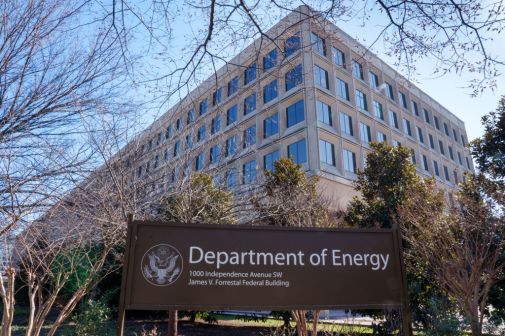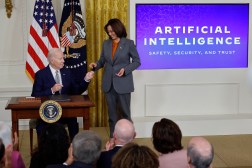Retrained agency employees can be a key source of cybersecurity talent, NSC official says

As the government embraces new technology and looks for the right people to utilize it, federal agencies might have no choice but to develop unexpected sources of talent, a White House official said Thursday.
Estimates put the national cybersecurity labor shortage at approximately 285,000 open positions, said Tyson Meadors, the National Security Council’s director of cybersecurity policy. To fill at least some of those gaps in the federal government, officials should start looking to retrain their current employees, he said.
“One thing we know we need to do is create some kind of aptitude test that is targeted not toward the accession cyber, but from the retraining side,” he said. “So who is your accountant that could actually be a keyboard ninja. That is going to be where we are going to find our own sort of magical unicorns — inside our own organizations.”
Meadors spoke at the Association for Federal Information Resources Management’s Cybersecurity Summit, where the resounding message was that a significant dearth of cybersecurity talent presents agency officials with possibly a greater challenge than their IT modernization efforts.
“Even though tools matter, people matter more,” Meadors said. “The core skillsets, the core competency, the literacy, the numeracy, the problem-solving skills, those are generally constant. We’re finding that as we look at the metrics — there’s actually some good [Organization for Economic Co-operation and Development] data on this — the United States isn’t actually leading the world in any of those anymore.”
The president’s fiscal 2019 budget request includes a $50 million fund to improve federal recruitment and retention of personnel, including employee training on emerging technologies like artificial intelligence, which is sparking interest in C-suite circles.
Meadors said the federal government must also embrace a degree of fluidity in the cybersecurity workforce, especially with the public and private sectors exchanging personnel skilled in critical infrastructure in national security roles.
“I imagine there have been more than a few companies in this room have hired quite a few veterans,” he said. “The fact that they are leaving does not mean they are leaving national security. On the retention side, we are not nearly as concerned about that issue as we are about making sure that we have the ability to allow people to go and come from federal service over the course of their careers.”
To fill the talent gap, Meadors said the Trump administration is going to advocate the private sector adopt cyber-skill frameworks and more skills development options in the future.
“That 285,000 number of open jobs in the United States is not going to be filled by computer science undergraduates,” he said. “It’s going to have to be filed by a combination of things: apprenticeships, community college graduates, people who can be hired simply because they have some kind of individual aptitude/talent so that we can identify through nontraditional sources.”






